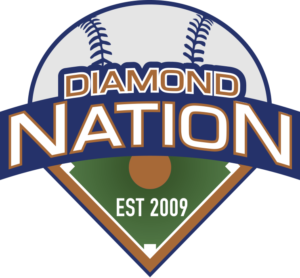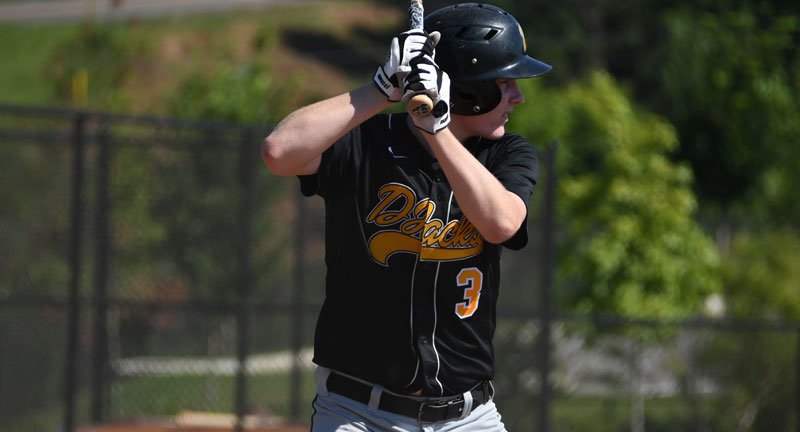Ryan Jaros, a sophomore third baseman, has committed to Georgia Tech.
Trepidation, frustration and outright concern.
These were the emotions felt by every college baseball coach, every travel organization and high school players throughout the nation heading into a delayed summer baseball season that will be remembered without the same fondness of previous summers.
But for 11 Diamond Jacks, the 2020 summer will be remembered as the summer they landed a Division 1 or Division 2 college scholarship. All those dreams fertilized on the little field and blossomed on the big field would come to fruition despite the NCAA imposing a summer long “dead period” on in-person recruiting for those two divisions.
Whether you believed the NCAA’s reaction to the COVID-19 pandemic was appropriate or overwrought simply did not matter. What mattered were those highly-anticipated post-game conversations with college coaches and campus visits to the schools of players’ dreams were not going to happen in the disjointed summer of 2020.
During a recruiting “dead period” coaches cannot attend games and meet with players in-person. Normally, summer baseball comes with months of an open recruiting ritual that brings hundreds of college coaches to Diamond Nation’s facility in Flemington, N.J. each week. But the word “open” wasn’t a word used often in the summer of 2020. The words we all became used to were closed, quarantined and rate of transmission.
“This was definitely uncharted territory for all of us in the world and college baseball recruiting is no exception,” says Stetson University assistant coach Joe Mercadante. “Just like most schools and professions, though, the job must go on and we needed to continue to do our jobs.” The complete loss of the 2020 high school season added to that frustration and made the summer tournament season that much more critical. That season wouldn’t start, thanks to the pandemic, until early July.
Indeed, college coaches would need players to stock their teams in 2021, ‘22 and beyond. Travel programs were, of course, stocked with players – be they rising sophomores, juniors or seniors – to fill those spots. But without seeing the talent in-person, the colleges were left to a new recruiting normal that, on the face of it, was certainly short of acceptable.
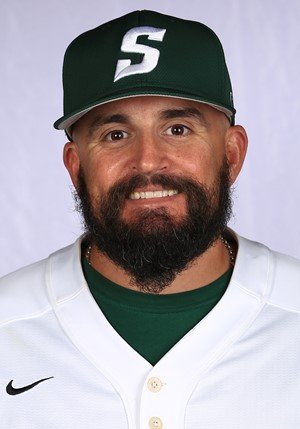
Trepidation, in fact, could have been the new middle name of Diamond Nation recruiting coordinator Steve DiTrolio, whose job it is to guide Diamond Jacks players to colleges where they fit best.
“Was I concerned? Yes, a little bit,” DiTrolio said. “There were so many uncertainties. We were in a holding pattern from March, waiting for the NCAA updates and wondering how the coaches were going to handle recruiting.”
DiTrolio would spend a lot of time on the phone keeping coaches abreast of his players’ development. “It was touch and go for a while, but once we got playing I knew the coaches would find ways to get the information they needed on players so they could make informed decisions,” said DiTrolio.
The reputation of the Diamond Jacks program and DiTrolio and his staff’s relationships with college coaches would pay dividends and put the program ahead of the recruiting curve in a year when falling behind seemed inevitable.
“Our relationships came in handy with a lot of schools,” said DiTrolio. “They know what kind of kid they are getting from us. We kept the lines of communication open, used videos and social media, anyway to get exposure for our kids. Before we knew it, we had 11 guys commit to D-1 schools and we expect a few more in the next few weeks. It was a successful summer but a very different one.”
For St. John’s University pitching coach, George Brown, relationships and creativity proved critical.
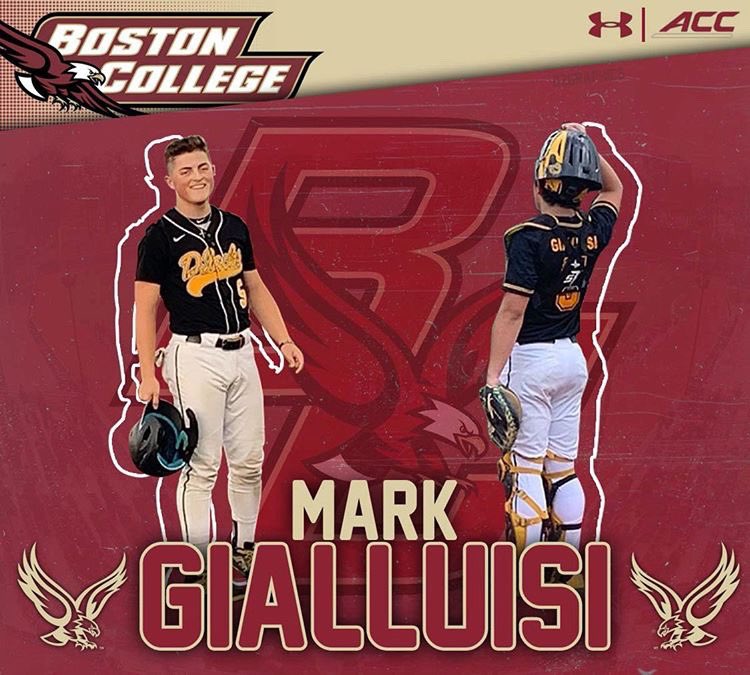
“One of the greatest challenges college coaches faced during this tumultuous time has been navigating the recruiting landscape,” said Brown. “Since we weren’t able to get out and see players in person, we’ve had to rely on a lot of different resources. Our relationship with the Diamond Jacks and Steve DiTrolio has helped St. John’s University immensely. Through impartial feedback and honest evaluation of their players, we have been able to continue recruiting high level athletes.”
One of those players is Joe Mascio, a 6-0, 190-pound lefthander from Bishop Eustace high school who played for the Diamond Jacks Super 17U team this summer and recently gave his verbal to St. John’s.
Stetson actually landed two Diamond Jacks Super 16U players this summer. Rising junior shortstop Lorenzo Meola of Watchung Hills and rising junior first baseman Jayden Hylton of Ridge High School gave their verbal to coach Mercadante. Meola follows cousin Jon Meola (Toms River East) to Stetson and Hylton joins brother Brandon on the Stetson roster. Jon Meola was a senior at Stetson last spring.
“I made contact with the Stetson coaches by phone throughout the summer, as well as sending videos to them,” said the 6-5, 190-pound Hylton. “Diamond Nation was very helpful through the process. That made communicating with college coaches fairly easy. The coaches would contact coach Ditro and he’d have me call them. I couldn’t be happier with how the whole recruitment went.” Brandon Hylton was a redshirt freshman at Stetson last spring.
Communication is the word DiTrolio keeps coming back to.
“What helped us most was our communication with the coaches,” he said. “There was a trust level, back and forth. We were streaming games here through Hi-Cast. Two PBR (Prep Baseball Report) events streamed very well for our kids and they got a lot of exposure there. The college coaches saw enough and, with our evaluation, became comfortable making their choices.”
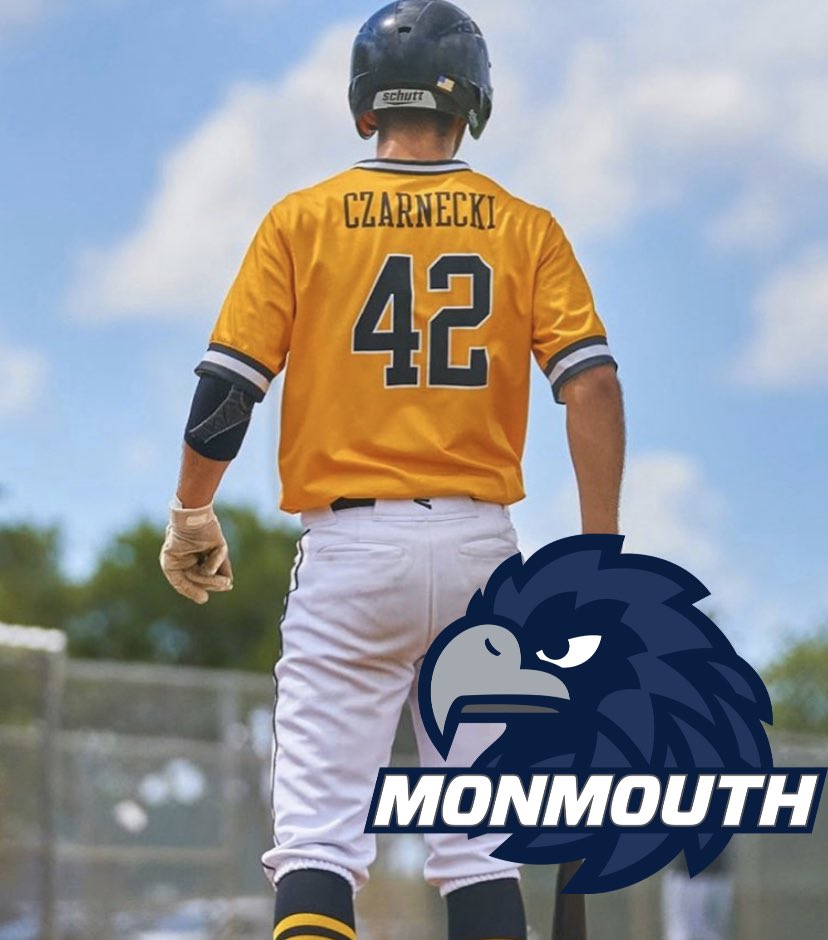
Mercadante was certainly one of the many college coaches to navigate what was a murky recruitment process this summer.
“A lot can be gained by video and metrics,” says Mercadante, “but to know you can pick up the phone and get the truth about a kid’s makeup, personality and work ethic is more important to us than what measurables we may see on any video.
“Recruiting virtually and not being able to see young men compete in person is not ideal. That is why having great relationships with coaches and organizations are a must. We want good players but we need great people.”
Ryan Jaros, a rising sophomore at Cranford High, had a terrific summer for the Diamond Jacks Super 15U squad and saw his already raging stock elevate further. The 6-3, 205 third baseman would secure a commitment from Georgia Tech.
“Coach (James) Ramsey from Georgia Tech contacted me through (Diamond Jacks) coach Travis (Anderson),” said Jaros, “and we talked weekly. I was concerned heading into the summer and questioned how college coaches were going to see me play. I took video from Hi-Cast and sent them to coaches. Diamond Nation focuses heavily on player development and helping you get to the next level. Diamond Nation has great coaches and they are even better men who will do anything for their players.”
Boston College had a banner summer, too, at Diamond Nation, landing Diamond Jacks Connor Dreyer, a third baseman from Delbarton, and Mark Gialluisi, a catcher from St. Joseph of Metuchen.
“During the pandemic, phone calls to coaches became very important,” said the 5-11, 180 Gialluisi, who had a few offers in his back pocket heading into the summer. “I had zoom calls with several programs, which was a more personable experience. My Diamond Jacks coaches were right there during the process, telling which schools I needed to call.”
Nick Czarnecki was one of the many high school players to lose his all-important junior season to COVID-19 but was fortunate enough to get his college commitment behind him a just ahead of the cancellations caused by the pandemic.
“I was worried about the NCAA dead period and wasn’t sure I’d get looked at by schools during the summer,” said Czarnecki, a 5-11, 180 first baseman from Hunterdon Central High who has been a Diamond Jack since he was 11 years-old. “The NCAA kept extending the dead period.”
Czarnecki made contact with Monmouth University assistant coach Josh Epstein and, with the help of the Diamond Jacks staff, was able to narrow his choices. “The recruiting process was filled with many ups and downs,” said Czarnecki. “Diamond Nation helped a lot during the process.”
As the summer unfolded it was fascinating to watch the variety of Division 1 programs that, despite not being on site at Diamond Nation, continued to make their “virtual” presence known.
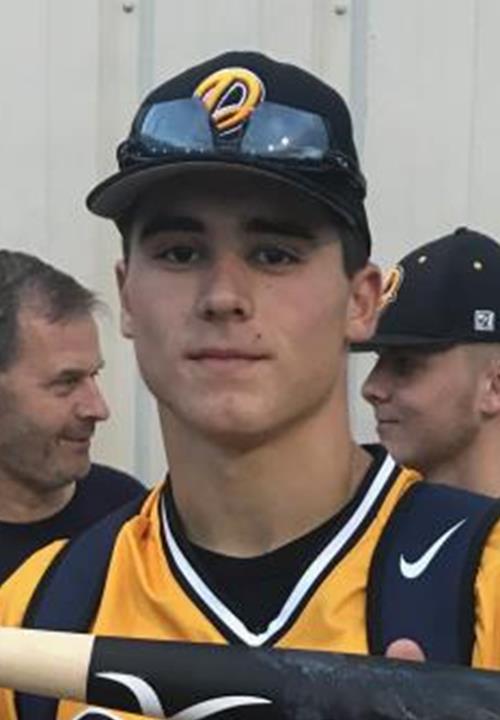
Ben Romano, a rising junior at The Hun School, had a heck of summer as well with the Diamond Jacks Super 17. Romano starred at a PBR event and landed a commitment to Tulane. Romano, a 6-2, 200-pound center fielder, has an explosive exit velo of 98 miles per hour.
Stony Brook University on Long Island has been a program on the rise and it found a match with the Diamond Jacks Super 16’s Matty Wright, a lefty hitting rising junior outfielder from Somerville High.
“Stony Brook offered me right before the summer,” said Wright. “Coach Ditro helped get in contact with (Stony Brook associate head) coach (Jim) Martin in the spring. I was very happy how everything went and felt super comfortable talking with coach Martin.”
Two Diamond Jacks rising seniors, Abel Saft and Chris Baillargeon, were also able to land commitments this summer. Baillargeon, a catcher/outfielder from Xaverian High School in Staten Island, turned heads and gave his verbal to Holy Cross. Baillargeon’s Super 17U teammate, Saft, a righty pitcher and corner infielder from Moravian (Pa.) Academy, secured a commitment from Division 2 Kutztown (Pa.) University.
DiTrolio, in retrospect, couldn’t be happier how the summer recruiting period turned out for his Diamond Jacks, considering the huge obstacle the COVID-19 pandemic had laid down in front of baseball community this summer.
“I was in constant communication with the schools from March and throughout the quarantine,” said DiTrolio. “We were relaying communication back and forth between the coaches and players. I think we were able to make it a collaborative effort in getting our players exposure.”
